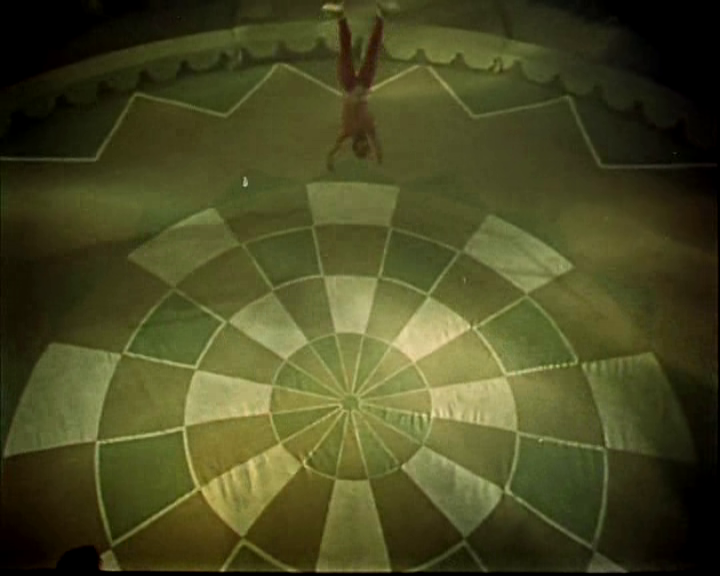Saturday
February 3rd, 2018
8pm
February 3rd, 2018
8pm
KINO SLANG
at the
Echo Park Film Center
1200 N. Alvarado St.
Los Angeles, CA. 90026
1200 N. Alvarado St.
Los Angeles, CA. 90026
presents
THE BOSS DIDN'T SAY GOOD MORNING
&
THE WRESTLER AND THE CLOWN
(1957, Boris Barnet & Konstantin Yudin)
Program total running time: 1 hour 47 minutes
There will be no introduction
Doors open at 7:30pm, Film starts at 8pm
Program Notes will be provided at the door
"Kino Slang" is a regular series of cinema screenings programmed by Andy Rector continuing the cinematographic and historical excavations, proceedings by montage and association, silent alarms and naked dawns of this eleven-year-old blog.
"Kino Slang" is a regular series of cinema screenings programmed by Andy Rector continuing the cinematographic and historical excavations, proceedings by montage and association, silent alarms and naked dawns of this eleven-year-old blog.
*
THE BOSS DIDN'T SAY GOOD MORNING
1937. Direction: Jacques Tourneur. 11 minutes. An MGM "Miniature". Script: Douglas Foster. Narrator: Carey Wilson.
When ordinary office worker John Jones's boss doesn't return his routine "good morning", Jones and his family live in anguish over the implications. Exhorting the boss, the narrator of the film (Carey Wilson) insists one must know "whether John Jones is happy, and what relation to life John Jones has that gives him inspiration and the ability and willingness to live."
THE WRESTLER AND THE CLOWN (Борец и клоун)
1957. Direction: Boris Barnet & Konstantin Yudin. 95 minutes. Mosfilm. Script: N. Pogodine. Cinematograpy: S. Polouianov. Sets: V. Chtcherbak, B. Erdman. Music: Iou. Birioukov. Sound: V. Zorine. Costumes: M. Joukova. Cast: S. Tchekan, A. Mikahilov, A. Soloviov, B. Petker, I. Arepina. In Sovcolor.
In Tsarist Russia, circa 1900-1910, Ivan, a wrestler, arrives at the port of Odessa in search of a job with the local circus. There he makes fast friends with Durov, a clown, similarly destitute and ambitious. After successfully being hired, they face difficult working conditions, being subordinated like animals and sabotaged like men, struggling for life and the exercise of their respective arts. Ivan falls in love with Mimi, a trapeze artist, Durov wins international acclaim and travels the world. Director Boris Barnet--one of the greatest, most casual poets the cinema has ever known--exuberantly transcribes the atmosphere of the old circus with his Sovcolor camera. Bursting with human and historical detail, aesthetically a bulwark for the young Jean-Luc Godard and a regular feature at Henri Langlois's Cinémathèque Française, THE WRESTLER AND THE CLOWN has been admired for its tenderness, its tall and vital rendering of popular real-life people in turn-of-the-century Russia, and its bittersweet dynamic of fragility, spectacle, and sport. Never before screened in Los Angeles.
1937. Direction: Jacques Tourneur. 11 minutes. An MGM "Miniature". Script: Douglas Foster. Narrator: Carey Wilson.
When ordinary office worker John Jones's boss doesn't return his routine "good morning", Jones and his family live in anguish over the implications. Exhorting the boss, the narrator of the film (Carey Wilson) insists one must know "whether John Jones is happy, and what relation to life John Jones has that gives him inspiration and the ability and willingness to live."
THE WRESTLER AND THE CLOWN (Борец и клоун)
1957. Direction: Boris Barnet & Konstantin Yudin. 95 minutes. Mosfilm. Script: N. Pogodine. Cinematograpy: S. Polouianov. Sets: V. Chtcherbak, B. Erdman. Music: Iou. Birioukov. Sound: V. Zorine. Costumes: M. Joukova. Cast: S. Tchekan, A. Mikahilov, A. Soloviov, B. Petker, I. Arepina. In Sovcolor.
In Tsarist Russia, circa 1900-1910, Ivan, a wrestler, arrives at the port of Odessa in search of a job with the local circus. There he makes fast friends with Durov, a clown, similarly destitute and ambitious. After successfully being hired, they face difficult working conditions, being subordinated like animals and sabotaged like men, struggling for life and the exercise of their respective arts. Ivan falls in love with Mimi, a trapeze artist, Durov wins international acclaim and travels the world. Director Boris Barnet--one of the greatest, most casual poets the cinema has ever known--exuberantly transcribes the atmosphere of the old circus with his Sovcolor camera. Bursting with human and historical detail, aesthetically a bulwark for the young Jean-Luc Godard and a regular feature at Henri Langlois's Cinémathèque Française, THE WRESTLER AND THE CLOWN has been admired for its tenderness, its tall and vital rendering of popular real-life people in turn-of-the-century Russia, and its bittersweet dynamic of fragility, spectacle, and sport. Never before screened in Los Angeles.


















No comments:
Post a Comment